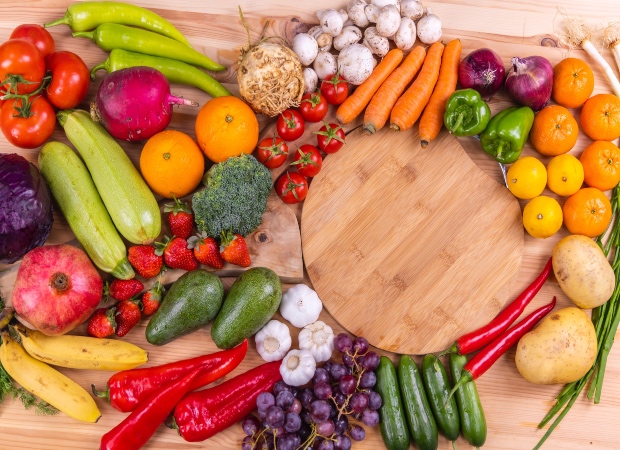Ever heard “You are what you eat”? We surely have, countless times. But who knew the way we feel, the way we make decisions, our own inner drive is so closely linked to the foods that we consume?
Previous ideas and beliefs within the medical field, specifically in clinical psychology, taught that nutrition and diet were of trivial significance for mental health and that only drugs or psychotherapy could treat these serious conditions. Over the last decade, more and more scientific studies have consistently deduced that mental illnesses like depression and anxiety have become prevalent due to our incorrect diets and lifestyles, including having a role in bipolar and schizophrenia. That poor nutrition is a significant and modifiable risk factor for the development of mental illness. New studies are showing that suboptimal nutrition is contributing to the epidemic of mental illness.
Nutrition matters – “it is a safe and viable way to avoid, treat or lessen mental illness”, says clinical psychologist Julia Rucklidge. She also added that if we are really serious about mental health, we need to get serious about the critical role played by nutrition.
Food plays a crucial role on the gut, including gut-biome (natural bacteria), which has also been proven to be imperative as gut health influences the health of your whole body, including your brain. The gut-brain connection affects immunity, inflammation, oxidative-stress, gene expression, cell damage and mood-regulating chemicals such as serotonin (which is mostly produced in the gastrointestinal tract) and dopamine. Talk about being moody.
The brain is a highly metabolic organ – it uses a lot of energy and requires a lot of nutrients to function constantly as it doesn’t stop working. Feed that brain! Food high in nutrients, vitamins and the correct sources of proteins provide the needed building blocks for the development of neurotransmitters, the enzymes and the cellular structures in the brain.
Newer studies have been consistent in showing that healthy dietary patterns like following the Mediterranean diet – one that is focused on predominantly eating fresh and whole foods, with minimal red meat intake – have been shown to promote radical positive results. Dr Tracey Marks, a forensic psychiatrist and psychotherapist, commented that “a healthy diet is associated with a 30% reduction in depression and a 40% improvement in your thinking”.
Inflammation contributes to depression. Healthy diets like the Mediterranean diet are anti-inflammatory and are rich in B-vitamins and folate that is important for brain function as it increases neuroplasticity. Neuroplasticity refers to the connections between the neurons. Other important brain foods are omegas 3 and 6, like those found in perfect ratio in the B-WELL Canola oil products – omega 3 is linked to preventing degenerative brain conditions like Alzheimer’s or Parkinson’s.
Including the ones mentioned, there are specific nutrients that act as “mood boosters”, such as:
- omega 3
- calcium
- healthy fats
- zinc
- magnesium
- amino acids
- iron
- folate
- vitamins B and D
- pre- and probiotics
This may sound overwhelming to some, but we are hoping to excite you since these healthy brain foods are so easy to base your diet on since there is such a wonderful list of delicious foods.
Here is a fun shopping list of good mood food for you:
Omega-3:
B-WELL Canola Oil, B-WELL Mayonnaise, walnuts, chia seeds, flaxseed, eggs, salmon, sardines, tuna, herring, mackeral
Whole foods (foods close to their original state):
Beans, lentils, chickpeas, peas, seeds (hemp seed, pumpkin seeds, linseed, sunflower seeds)
Whole grains:
Brown/black rice, couscous, quinoa, buckwheat, millet
Fruits:
Cantaloupe, oranges, guavas, mango, pineapple, bananas, pomegranates, berries, peaches, figs, coconut
Vegetables:
Leafy greens (broccoli, spinach, Brussel sprouts, kale, rocket), peppers, sweet potato, olives, collard
Good fats:
Extra-virgin olive oil, avocados, seeds, nuts (macadamia, almonds, pecan nuts, cashew nuts, brazil nuts)
Adaptogen foods:
Mushrooms, ashwagandha, holy basil, turmeric, ginger, dark chocolate/cacao
Probiotic rich and fermented foods:
Natural yoghurt, sauerkraut, keffir, kombucha, tempeh, sourdough bread
Before we grab the trolley too quickly, here are some of the foods to reduce or eliminate. These are bad for brain health, so make sure they stay off the shopping list:
- Refined cereals
- Fried foods
- Trans and saturated fats
- Sugary foods
- Processed foods (deli meats, cookies, crackers, chips)
- Refined flour (like in white bread, white rolls, crackers)
Food and nutrition must, of course, be paired with sufficient exercise to keep the blood flowing, for the release of mood-boosting endorphins and to allow for healthy detoxification through sweating and increased heart rate. Good amounts of rest as well as surrounding ourselves with a support system of people who love and care about us is all monumental in the path to healthy and balanced mental and mood health.

